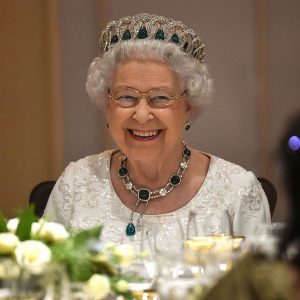The late Queen Elizabeth II used to say that the royal family has to be seen to be believed.
That became glaringly evident as the absence of Kate, the Princess of Wales, from public view unleashed an escalating frenzy of wild speculation, skepticism and flat-out conspiracy theories fueled by online armchair detectives.
It’s unlikely to let up even though Kate and husband Prince William have reportedly been filmed at a farm shop near their Windsor home — the first footage of the 42-year-old princess since she had abdominal surgery for an unspecified condition two months ago.
The Sun newspaper plastered its front page with “Great to see you again, Kate!” and said it had decided to publish the footage “in a bid to bring an end to what the Palace has called the ‘madness of social media.’”
A newspaper says video of Prince William and Kate should halt royal rumor mill. That’s a tall order.
AP correspondent Charles de Ledesma reports on an unofficial royal walkabout which has excited the British press.
But that probably won’t stem the tide of feverish and at times fantastical speculation that has swirled about the princess’s condition during her absence.
“The potency and legitimacy of monarchy comes from visibility,” said Anna Whitelock, professor of history of the monarchy at London’s City University. “Visibility is the ‘contract’ between a monarch and their people.”
Evidence of that lies in the steady stream of photos of King Charles III meeting dignitaries and officials released by the palace since the monarch announced in February that he is being treated for an unspecified form of cancer. Charles’ relative openness about his diagnosis was a departure for the generally secretive royal family.
Kate has not been as open, or as successful, at controlling the narrative.
Palace officials gave little detail about Kate’s condition beyond saying that it wasn’t cancer-related, the surgery was successful and recuperation will keep Kate away from public duties until after Easter. That’s likely to mean she’ll be out of sight until her children go back to school on April 17.
Experts who study conspiracy theories say the snowballing conjecture surrounding Kate isn’t so different from how dozens of other “nonstandard beliefs” gain momentum.
“The moment there’s an information gap, people will fill it. And they can fill that space quite quickly … when we have such a fast-moving mediascape,” said Simeon Yates, a professor of digital culture at the University of Liverpool.
Speculation didn’t stop after William and Kate’s Kensington Palace office released a photo of Kate and her children George, Charlotte and Louis on March 10 to coincide with Mother’s Day in the U.K. The move backfired when The Associated Press and other news agencies retracted the picture from publication because it appeared to have been manipulated, fueling even more conjecture.
Although there was no suggestion the image was fake, inconsistencies such as the alignment of Princess Charlotte’s left hand with the sleeve of her sweater suggested it had been altered.
Kate issued a statement acknowledging she liked to “experiment with editing” and apologizing for “any confusion” the photo had caused.
The manipulated photo set off a new round of speculation, some of it centered on unsubstantiated theories that the image wasn’t recent or that Kate had been photoshopped in — alongside even more bizarre claims.
The palace and the British government have tried to ignore the conjecture but occasionally have had to respond. The British Embassy in Kyiv released a statement saying Monday “news about King Charles III death is fake,” after Russian outlets falsely reported the monarch’s demise.
The video clip published by The Sun late Monday appears to show William and Kate smiling as they walked together, carrying shopping bags. It said the footage was taken Saturday in Windsor, west of London.
The Sun quoted Nelson Silva, who said he filmed the video, as saying, “Kate looked happy and relaxed. They look happy just to be able to go to a shop and mingle.”
Kensington Palace did not comment on the video.
Yates said that “Kategate” resonates because so many people in the U.K., the United States and around the world feel emotionally invested in the royal family — an institution that’s both public and secretive.
“There’s quite an emotional thrill of thinking, ‘I know there’s a secret going on,’” he said. “There’s an enjoyment in thinking, well you know, ‘I know something special.’ It makes you feel better.”
Daniel Allington, who studies conspiracy theories at King’s College London, agreed that the Kate speculation has its roots in people’s emotional connection to the British royal family.
“Because of that, they want to talk about them, they want to know about them, and when there is very little known, people end up speculating. They are trying to make something out of nothing,” Allington said.
He also predicted that quieting the international frenzy won’t be a simple task.
“Once people start doubting, they can doubt practically everything. Once people start going on that track of speculation about the truth being hidden, it’s very difficult to get them off that track,” he said.





